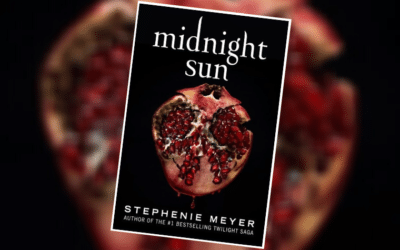A “special boy” becomes a “brilliant man” who allows nothing and no one to get in the way of what he wants, consequences be damned. You must realize that I’m talking about a fictional man in a story that takes place a long time ago, because real men in modern times would NEVER behave in such a way. Whether you’ve read the original work or not, Mary Shelley’s Frankenstein is such a part of our literary zeitgeist that everyone knows the story anyway.
To be honest, at this exact moment in time I didn’t think that reading about some guy who causes unimaginable horrors to those around because he wants to feel important would be good for my temperament. There’s way too much of that going on right now. Thankfully, Kiersten White’s The Dark Descent of Elizabeth Frankenstein, a reimagining of the classic novel, comes at it from a different direction: this is the story of woman who thinks that she must go through the world behaving the way men want her to, until she realizes that she really, really doesn’t have to. Right on.

“Elizabeth Lavenza hasn’t had a proper meal in weeks. Her thin arms are covered with bruises from her “caregiver,” and she is on the verge of being thrown into the streets . . . until she is brought to the home of Victor Frankenstein, an unsmiling, solitary boy who has everything–except a friend.
Victor is her escape from misery. Elizabeth does everything she can to make herself indispensable–and it works. She is taken in by the Frankenstein family and rewarded with a warm bed, delicious food, and dresses of the finest silk. Soon she and Victor are inseparable.
But her new life comes at a price. As the years pass, Elizabeth’s survival depends on managing Victor’s dangerous temper and entertaining his every whim, no matter how depraved. Behind her blue eyes and sweet smile lies the calculating heart of a girl determined to stay alive no matter the cost . . . as the world she knows is consumed by darkness.”
There are Gothic homes, dusty books, and violent storms galore as our main character takes us along on her journey. I have to admit that there were times that I was frustrated by Elizabeth, but I had to remind myself that the frustration was directed more at her situation than at her personally. She’s a young woman living in the 19th century, and as such the only options available to her in life are tied to men. She doesn’t exactly have the luxury of hauling off and giving them a piece of her mind. Whether she likes it or not, she’s dependent on them, and so their opinion of her is paramount. Sometimes Victor gets very upset, and Elizabeth needs to calm him down. Sometimes Victor gets violent, and Elizabeth needs to smooth it over. Sometimes Victor gets jealous, and Elizabeth needs to assure him that he has nothing to worry about. Sometimes Victor feels badly about himself and Elizabeth needs to make sure that he knows how wonderful he is.
We, of course, know exactly what the hell is wrong with Victor. And that enormous shadowy figure that Elizabeth keeps wondering if she’s actually seeing? We know all about that, too.

Mary Shelley, OG
But while those expected characters (you’ll also recognize Justine, Henry Clerval, and others if you’ve read the original) and plot points are there, this isn’t simply a retelling of Frankenstein from the point of view of another character. Dark Descent takes on a life of its own, and the female characters here get more to do than they ever did in Mary Shelley’s book. (We have to wonder how Shelley would have written her female characters if she’d lived in a different time. The first edition of Frankenstein didn’t even have her own name on it. Couldn’t have a lady author scaring people away. “Anonymous” was a much safer choice.) Elizabeth may act sweet and demure because she knows that’s what grants her favor, but the book is written in the first person so the reader sees what really goes on inside her mind. She gets angry, she’s devious and strategic, she’s a fighter.
I finished this book this past Saturday, when we were officially reminded yet again how much this country hates women, especially those who get in the way of men behaving however they like. A scene where a woman in a mental asylum explains how wanting to be treated like a human being is what landed her there stood out as particularly apt. Is blinding rage mixed with tears mixed with sardonic chuckling its own emotion? It should be. We could call it “existing while female.”
This is the perfect novel for this time of year. It’s October, which means spookiness is everywhere and monsters are having their heyday. So are women who are fed up with men’s bullshit.




